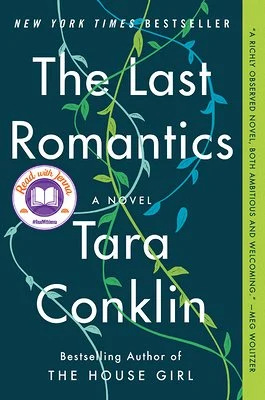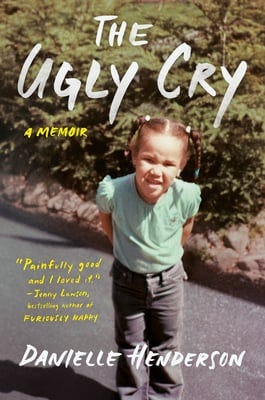Summer Vacation: it may be the most evocative two-word phrase I know. It means something different to each person who says it, and many different things to one person over a lifetime. The new memories and meanings don’t replace the old; they layer over, like new rings inside the trunk of a living tree.
At its core, ‘summer vacation’ is still the mantra I repeated to myself, silently, every school day in June. Back then it meant Creamsicles in the freezer and Kool-Aid in the fridge. Watching my dad hook the tent trailer up to the family Pontiac, peeling our bare legs from its leather backseat and singeing our fingers on the metal belt buckles. Swimming in the lake. Scouring the library shelves for a Babysitters Club book I hadn’t read yet. Bickering with my siblings in between reruns of The Price Is Right until my mother appeared in the doorway with a glint in her eye that I can now replicate, perfectly.
Contemporary coming-of-age stories set in the 80s or 90s are like catnip for me. If a quick glance at the flap jacket copy reveals the phrase ‘summer vacation,’ I will buy or borrow the book instantly and promote it to the top of my TBR. I can never resist an opportunity to go back to the decades of my childhood and see them anew, now that I’m an adult with children of my own.
So, here are three variations on one of my favourite themes: children of the 80s on summer vacation.
The Last Romantics, by Tara Conklin
Though the title suggests a swoony love story, The Last Romantics is less of a romance novel and more of a family portrait. The plot traces the lives of four siblings, beginning with the unexpected death of their father. It’s 1981, and their mother (who has never worked outside the home) soon realizes she is unable to afford their pretty yellow house on her own and relocates the family to a much smaller, dingier place on the outskirts of town. The day they move in, she disappears into her bedroom for months on end, a period of time the kids will later call The Pause. Fiona, the youngest, describes it this way:
That first summer we went feral. Joe and I became wild things, twigs in our hair, skin brown and dirty and scraped. Renee and Caroline tried to remain more respectable, more mature, but they, too bore the marks of neglect and adventure. The house was never clean … We were often hungry. We were always barefoot.
Thankfully, The Pause ends before their childhood does, but even so, the events of this period shape the trajectory of their lives and their relationships as they grow into adulthood.
This is a stylishly written novel, and a thoughtful exploration of the many ways a crisis can continue to pull a family together and drive them apart, for years after the event itself. I couldn’t put it down.
The Ugly Cry, by Danielle Henderson
For two completely different books, The Last Romantics and The Ugly Cry have a lot in common. Both stories begin in a small American suburb, with an absent mother and siblings who “quickly became accustomed to a more feral way of life” once school was out:
Summers on Jersey Avenue were wild. Not only did Mom avoid scheduling any day camps or babysitting, but she also had no earthly idea how we spent our time once she left for work. The only rule was that we were not allowed in our own house until she came home…in my Mom’s mind, any child left alone in a house for more than three minutes was just looking for an excuse to rip couch cushions apart with their bare teeth.
Both stories are told in the first person, by a child of the 80s who grows up to be a writer. Here, however, the similarities come to an end. Just for starters, The Last Romantics is the story of a white family, while the Hendersons of The Ugly Cry are the only Black family in their mostly white neighbourhood. Oh, and The Ugly Cry is not fiction. It’s a memoir, in which Danielle Henderson revisits her childhood and examines her relationship to the women in her family—the mother who abandons her, the sharp-tongued grandmother who raises her, the aunt whose example she follows, as she begins to build a new life far from home.
It’s not always an easy read. Henderson grows up with violence and abuse as well as poverty and neglect. Yet this book also made me snort with laughter as often as it made my eyes well up. The front-cover blurb of “painfully good” could not be more apt.
Clock Dance, by Anne Tyler
In 1967, Willa Drake is an eleven-year-old girl living in a small, Pennsylvania town. She has a younger sister, an exceptionally mild-mannered father, and a mother with a habit of abandoning the family. Though her absences are brief, they are frequent and dramatic, and ultimately inform Willa’s own approach to motherhood. She drops out of college to get married and raise children with all the emotional and financial stability she lacked as a child—only to find herself struggling with abandonment yet again, as her grown sons fly the nest soon after she is widowed. When a bizarre sequence of events hands her the chance to step in and care for a young girl she’s never met—who would otherwise be left largely on her own for (you guessed it!) much of the summer—Willa says yes, and flies across the country to do it.
Cheryl is a contemporary latchkey kid—but she’s about as far from feral as a nine-year-old can get. She does her own laundry (because her mother just leaves things to wrinkle in the dryer) and likes to bake (possibly because her mom’s culinary repertoire consists of “SpaghettiOs and frozen fish sticks”). She swears she doesn’t need a babysitter…but she not-so-secretly yearns for a grandma.
I devoured this found family story in one sitting, on Mother’s Day. I started reading with my coffee around 8:30, and ended around 5:30 with a G&T in my free hand. It is a profoundly satisfying novel with a relatable and memorable cast of characters, both human and canine. Highly recommend.
When I first started working from home, my kids were toddlers, and since then, ‘summer vacation’ has been more oxymoron than mantra. It means combing the internet for affordable, kid-approved activities. Wearing out the pavement between our house and the neighbourhood parks. Issuing a seemingly endless stream of reminders: put on sunscreen, close the screen door, hang up that wet bathing suit.
Unlike most of the kids in these books, my children see more of me in the summer, not less. It’s a huge privilege, for which I should feel fortunate—and I do, most of the time. And yet.
I also envy the mothers in these books, just as a tiny bit, in the same way I envy anyone who raised children in the decades when ‘parent’ was just a noun, and ‘parenting’ wasn’t the focus of a multi-billion dollar industry.
The level of supervision parents are expected to provide now, in 2022, is essentially around-the-clock surveillance. If you can’t be physically present with your children during the waking hours that fall outside school or daycare, that time should really be filled by an educational, enriching activity led by a well-qualified adult. An elderly relative or teenaged babysitter is a distant second-best. And then there’s technology to fill in for you when this level of active supervision isn’t practical. It begins in infancy, with video-monitored naps, and carries on through the teen years, via tracking apps on their phones.
Maintaining this standard of supervision is exhausting and expensive, and solo parents are in no way exempt. We are judged just as harshly as partnered parents for any perceived lapse, even though it far more difficult for us to achieve. It’s deeply unfair. And yet.
I really don’t have the time or energy to waste on complaining about it. I can’t imagine that there’s a solo parent out there who does.
But I also can’t imagine another solo parent who doesn’t feel the weight of it.
It’s always there, at the back of my mind, even though I know that my eleven-year-old daughter is fully capable of managing on her own at home while I run to the grocery store with her almost-nine-year-old sister. I also know that they can manage the five-minute walk to school without me, especially given that there is a crossing guard. As of this summer, I’m beginning to feel that they can even look after each other for a short time, provided that I’m never far away and always within reach by phone. I can trust them enough to subject their devices to regular (but random) inspections, rather than constant monitoring.
My kids have earned these measures of independence by demonstrating responsibility. Truly, they have. But I also grant them of necessity, and sometimes just for the preservation of my sanity. I can’t be with them in one way or another every waking moment, and I don’t want to be.
Please tell me I’m not the only solo mom who feels this way. (Or tell me what your secret is, if you feel the opposite. )
This sneaking suspicion that I am the only solo mom who feels this way is the real, super-secret reason I love books about families set in the late twentieth century. In my real life, I can’t let my kids walk to the park without inviting the judgement of the neighbourhood parents, not to mention a bunch of strangers on the internet. But I can read about mothers who could, and imagine myself living next door. I like to think I’d fit right in there.






I think it’s important for kids to have time to play with each other because it will have on reversible effects if all our children’s time is structured and without imagination. Just like the everybody wins a trophy generation this too will have its drawbacks.
I’m not a single parent. Heck, I’m not a parent. I follow this substack because I appreciate its literary conversation and book recommendations. The description of summer vacation at the beginning of this post made me remember the smell of my local library in the summer as I prayed for the appearance books by Gordon Korman and Carolyn Keene. I still remember the shame and fear when I had to explain why a certain Nancy Drew paperback doubled in size because I attempted to read it in the lake and there was an incident with a dear fly.